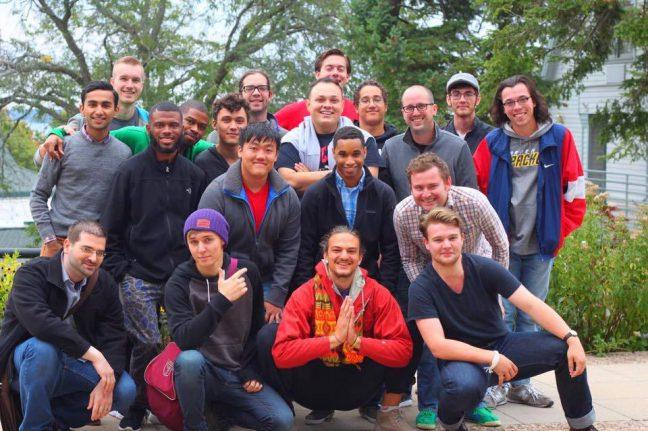When Ashley Viager was hired as a University of Wisconsin’s seminar coordinator in 2015, she realized something was missing: an outlet for men to talk about how gendered experiences shape their everyday lives.
Viager, co-chair of the broader UW initiative Men and Masculinities, introduced the Men’s Project, a registered student organization that provides a forum for discussing masculinity, in fall 2015 to fill this need. Viager initially developed the project when she worked at Washington University in St. Louis then brought the program to UW. Viager leads the Men’s Project with her husband Robert, the other co-chair.
“When we came here we noticed there was a gap, and we wanted to be able to provide opportunity for this type of learning and engagement,” Viager said.
The Men’s Project provides a space for any male identifying students to talk about gender stereotypes, emotional expression, feminism, gender-based violence and other issues, Viager said.
Every semester the Men’s Project hosts two separate groups of men that meet for one retreat and six weekly sessions. Each cohort has 10 to 15 students and is facilitated by two faculty or staff members, Viager said.
The program kicks off with an overnight retreat to build a platform of trust that the cohorts continue to build on throughout the six-week project, Viager said. For many, this is the first time they are diving into their own definition of masculinity, and they have to trust others to support them, Viager said.
Senior Dominic Ricci is one of the first members of the project, and he said the Men’s Project allowed him to be comfortable in his own skin while allowing him to define his own masculinity.
“Masculinity is very broad, but you never get to have the conversation of masculinity with your friends,” Ricci said. “There is an emotional want to share with peers.”
One of the major issues the cohorts discuss are the characteristics and actions that define men in American society, Ricci said.
In media, there is a pattern of strong male characters who are violent, entitled, heterosexual, overconfident and ladies’ men, Ricci said. Men who don’t have those popular characteristics are typically the people who are marginalized and bullied, Ricci said.
Adam Piasek, a fifth year senior at UW and one of the first members of the Men’s Project, said he was relieved to find other men who don’t relate to the normalized male gender stereotype.
“I was starting to feel out of place with other men that were acting in ways I felt were inappropriate,” Piasek said. “Seeing guys actively hitting on girls at parties and bars, and girls being visibly uncomfortable and guys not picking up on that bothered me.”
One of the topics they focus on in their weekly sections is gender-based violence, power and privilege, Viager said.
Aggressive acts of violence and power from men often stem from the image of men in movies like “Fight Club,” Piasek said. Male viewers forget those are fictional characters and not true representations of masculinity, Piasek said.
Ricci said the biggest problem men have is they don’t have an outlet to express their emotions, so they remain bottled up. Discouraging emotional expression can lead to mental health issues and potentially violent activities, he added.
“As a man, the only emotion I feel I can show is anger and happiness, but I can’t be sad or depressed,” Ricci said.
Ricci said this could be why 98 percent of mass shooters are men and why men are 3.5 times more likely to commit suicide than women.
Rejecting silence: Student survivors take control, speak out on sexual violence
Providing a space that allows for vulnerable discussions not only helps men better address some of these issues, but it also advances gender equity and social justice, Viager said.
Ricci said it is important for men to understand how gender stereotypes impact women as well. Similar to how men are misrepresented in the media, women are objectified and hyper-sexualized, Ricci said.
By acknowledging this fact and empathizing with women, men can better understand the issues women deal with, as well as feminism as a whole. Piasek said this sort of empathy is necessary to foster understanding.
“I want men to know that it is not just okay to be open, emotional and vulnerable, but it is essential to a happy life,” Piasek said. “Once you are able to open up and start living with emotion, life becomes a beautiful thing, and the Men’s Project is an incredible an avenue to get there.”


